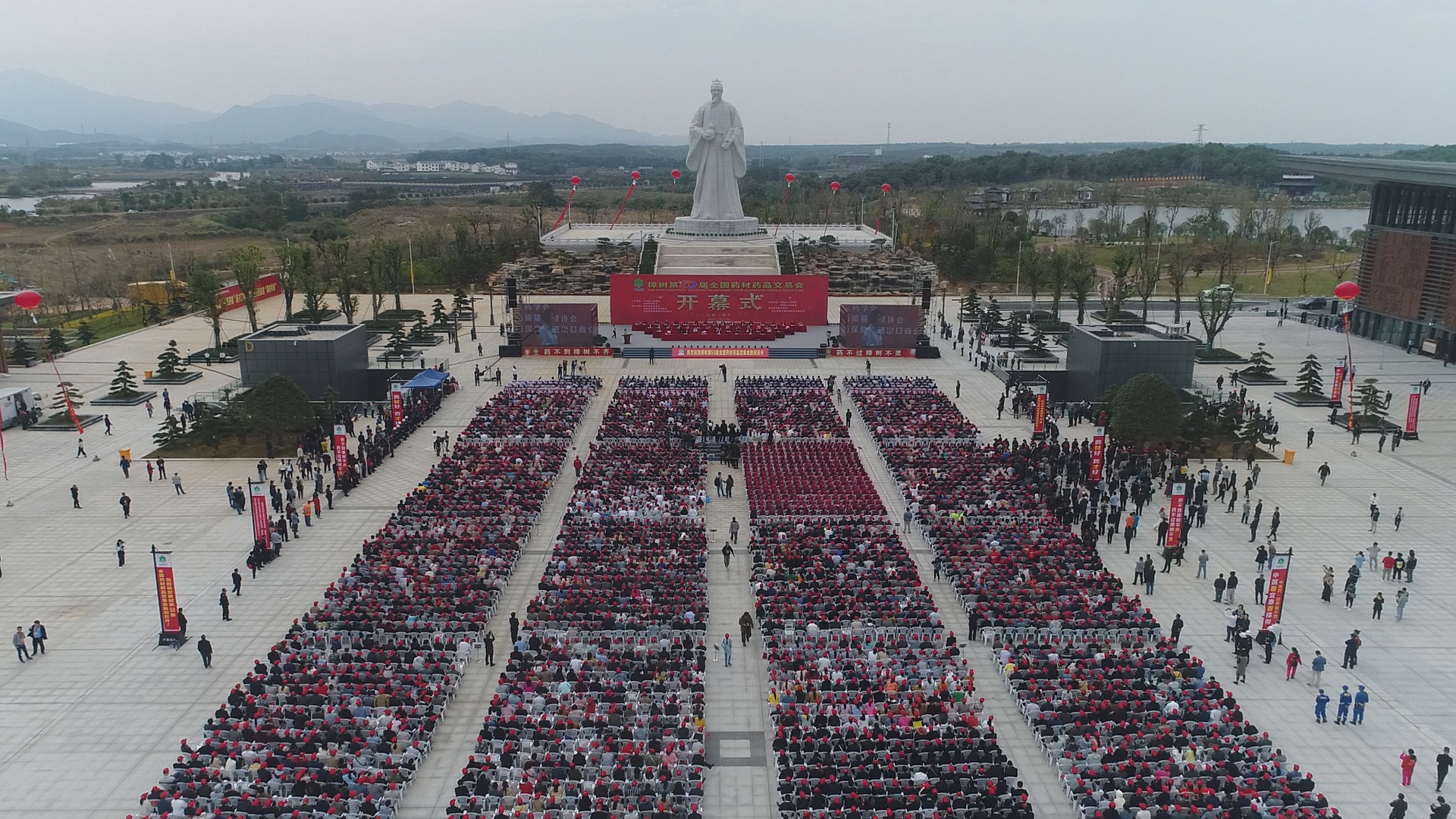
Zhangshu is a fascinating city located in the Jiangxi province of China. With a rich history spanning over centuries, this city has much to offer in terms of culture, heritage, and natural beauty. From ancient temples and traditional Chinese architecture to stunning landscapes and vibrant festivals, Zhangshu has something for everyone.
In this article, we will delve into 46 interesting facts about Zhangshu to give you a deeper understanding of this enchanting city. Whether you’re planning a visit or simply eager to learn more about the area, these facts will provide you with a comprehensive insight into its history, landmarks, traditions, and more.
So, join us on this journey as we explore the wonders of Zhangshu and discover why it is a must-visit destination for travelers seeking a blend of history, natural beauty, and cultural experiences.
Key Takeaways:
- Zhangshu, a city in China, is rich in history, culture, and natural beauty, with famous poets, hot springs, and traditional crafts, making it a captivating destination for travelers.
- Zhangshu’s vibrant night market, majestic waterfalls, and historical temples offer an authentic and enriching experience, showcasing the city’s deep-rooted heritage and captivating landscapes.
The Founding of Zhangshu
Zhangshu, a bustling city located in the northeastern part of Jiangxi Province, China, boasts a rich history dating back over 2,200 years.
The Meaning of Zhangshu
The name “Zhangshu” translates to “Camphor Tree” in English, reflecting the city’s abundance of this aromatic tree species.
Natural Beauty
Zhangshu is enveloped by the majestic Wuyi Mountains, offering breathtaking views and numerous opportunities for outdoor exploration.
Historical Significance
During the Three Kingdoms period, Zhangshu served as a military stronghold for the Shu Kingdom and witnessed numerous battles and political intrigue.
Famous Poets
Zhangshu has been the birthplace of several renowned poets throughout history, including Huang Tingjian and Xu Xiake.
Cultural Heritage
The city of Zhangshu is home to several historical sites, such as the Lushan Temple, Chengtian Pagoda, and the Huaguang Tower, showcasing its rich cultural heritage.
Agricultural Hub
Zhangshu is known for its fertile land, making it a key agricultural center in Jiangxi Province. The region’s tea, rice, and camphor products are highly regarded.
UNESCO World Heritage Site
Zhangshu is part of the Wuyi Mountains UNESCO World Heritage Site, recognized for its exceptional biodiversity and cultural significance.
Traditional Crafts
The city of Zhangshu is renowned for its traditional crafts, including bamboo weaving, paper cutting, and wood carving, which have been passed down through generations.
Ancient Trade Route
During the Tang Dynasty, Zhangshu served as a vital transportation hub along the ancient Tea Horse Road, facilitating trade between central China and Southeast Asia.
Natural Hot Springs
Zhangshu is famous for its natural hot springs, such as the Lushan Hot Spring and Huangjing Hot Spring, known for their therapeutic qualities.
Ecological Retreat
Zhangshu is home to several nature reserves and scenic areas, providing a haven for various plant and animal species, including the rare Chinese alligator.
Ties to Buddhism
Zhangshu has strong ties to Buddhism, with the Longhushan Temple, one of China’s oldest Taoist-Buddhist temples, located in the city.
Name in Chinese Characters
In Chinese characters, Zhangshu is written as ??, representing the city’s affiliation with the camphor tree and its natural beauty.
Emerging Tourism Destination
Zhangshu is gaining popularity as a tourist destination, attracting visitors with its historical sites, natural landscapes, and cultural offerings.
Delicious Cuisine
The local cuisine of Zhangshu features a blend of Jiangxi flavors, with specialties like Wuyuan braised fish, Lushan tea cakes, and Dongxiang bean curd.
Festivals and Celebrations
Zhangshu hosts various colorful and vibrant festivals throughout the year, including the Zhangshu Tea Festival and the Longhushan Temple Fair.
Historical Figures
Zhangshu has produced many notable historical figures, such as the Ming Dynasty scholar Xu Xiake, known for his travelogues.
Ample Educational Opportunities
Zhangshu boasts a strong educational system, with several reputable schools and universities, nurturing the intellectual growth of its residents.
Nature’s Masterpiece
The iconic Nine-Dragon Waterfall, located in Zhangshu, is a spectacular natural wonder that captivates visitors with its cascading beauty.
Traditional Medicine
Zhangshu has a long-standing tradition of herbal medicine, with local practitioners preserving ancient healing practices and knowledge.
Rich Tea Culture
Tea holds a significant place in Zhangshu’s culture, with tea plantations dotting the landscape and tea ceremonies being an important social ritual.
Silk Production
Zhangshu has a history of silk production, with skilled artisans weaving luxurious silk fabrics using traditional techniques.
Serene Buddhist Retreat
The Tianzhu Holy Land, situated in Zhangshu, serves as a serene retreat for Buddhist practitioners and spiritual seekers.
Impressive Architecture
The Zhangshu Confucian Temple showcases remarkable architecture, exemplifying the city’s reverence for Confucian teachings and principles.
Historical Temples
Zhangshu is dotted with numerous historical temples, including the Yeping Ancient Temple and the Shuanglong Ancient Temple, each with its unique charm.
Rich Mineral Resources
Zhangshu is blessed with abundant mineral deposits, including tin, coal, and iron ore, contributing to its economic development.
Famous Local Figures
Zhangshu has been the birthplace of many influential figures in various fields, including renowned calligrapher Wu Changshuo.
Magical Bamboo Forests
The enchanting bamboo forests in Zhangshu, such as the Lushan Bamboo Sea, create a mystical ambiance and attract nature enthusiasts.
Hometown of Green Thread
Zhangshu is known as the “Hometown of Green Thread” due to the high-quality green thread produced in the region, which is widely used in traditional Chinese embroidery.
Customary Ceramics
Zhangshu is renowned for its traditional ceramics, with skilled artisans handcrafting exquisite pieces, showcasing the city’s artistic prowess.
Cultural Festivals
Zhangshu hosts numerous cultural festivals throughout the year, celebrating traditional music, dance, and theater, adding vibrancy to the city’s cultural scene.
Majestic Peaks
Zhangshu is home to several majestic peaks, including the famous Lushan Mountain, which offers awe-inspiring vistas and hiking trails for nature enthusiasts.
Literary Heritage
Zhangshu has been a source of inspiration for many renowned writers and poets, with its natural beauty and rich cultural history fueling their creative endeavors.
Dragon’s Back Ridge
The Dragon’s Back Ridge, a scenic attraction in Zhangshu, derives its name from the ridge’s shape resembling the back of a mythical dragon.
Artistic Expression
Zhangshu has a thriving art scene, with local artists showcasing their creativity through various mediums, including painting, sculpture, and pottery.
Cultural Exchanges
Zhangshu actively engages in cultural exchanges with other cities and countries, promoting mutual understanding and appreciation of diverse traditions.
Famous Gardens
Zhangshu is home to several picturesque gardens, such as the Yuanxiao Garden and the Qingfeng Garden, where visitors can admire the beauty of traditional Chinese landscaping.
Silk Road Connection
Zhangshu played a role in the historical Silk Road trade route, connecting China with the Western world and fostering cultural exchange.
Abundance of Hot Springs
Zhangshu is dotted with numerous hot springs, providing a tranquil retreat for relaxation and rejuvenation.
Book of Songs Connection
Zhangshu has a connection to the ancient Chinese poetic work, the Book of Songs, with some of the poems believed to have been composed in the region.
Traditional Medicine Capital
Zhangshu is considered the traditional medicine capital of Jiangxi Province, with its practitioners preserving ancient healing techniques and knowledge.
Majestic Waterfalls
Zhangshu is blessed with several breathtaking waterfalls, including the Baihua Waterfall and the Laoying Waterfall, attracting visitors with their beauty and grandeur.
Architectural Treasures
Zhangshu boasts a rich architectural heritage, with well-preserved ancient buildings like the Yongquan Temple and the Tiantai Mountain Scenic Area.
Revolutionary History
Zhangshu played a significant role during the Chinese Revolution, with its residents actively participating in the struggle for independence and social change.
Vibrant Night Market
Zhangshu’s bustling night market offers a wide array of local delights, showcasing the city’s culinary traditions and vibrant street food culture.
With these 46 fascinating facts about Zhangshu, it becomes evident that the city is a treasure trove of historical, cultural, and natural wonders. From its deep-rooted heritage to its breathtaking landscapes, Zhangshu offers a captivating destination for travelers seeking an authentic and enriching experience.
Conclusion
In conclusion, Zhangshu is a fascinating city with a rich history, vibrant culture, and breathtaking natural beauty. From its ancient temples and historical sites to its picturesque landscapes and friendly locals, there is something for everyone in Zhangshu. Whether you are interested in exploring its historical significance, indulging in delicious local cuisine, or simply enjoying the tranquility of its surroundings, Zhangshu offers a unique and memorable experience.
FAQs
1. What is the history of Zhangshu?
Zhangshu has a history dating back over two thousand years. It was once an important cultural and political center during the Three Kingdoms period and has since played a significant role in Chinese history.
2. What are the must-visit attractions in Zhangshu?
Some of the must-visit attractions in Zhangshu include the Zhangshu Ancient Town, Longjin Mountain, Jiulong Mountain, and the Buddhist Four-sided Tower. These sites offer a glimpse into the city’s rich cultural heritage and natural beauty.
3. What is the best time to visit Zhangshu?
The best time to visit Zhangshu is during the spring and autumn seasons when the weather is mild and pleasant. This is when the city is adorned with colorful flowers and autumn foliage, creating a picturesque setting.
4. What is the local cuisine in Zhangshu?
Zhangshu is known for its delicious local cuisine, which includes specialties such as bamboo shoots, river snails, and various wild herbs. The local dishes are typically flavorful, aromatic, and reflective of the region’s agricultural abundance.
5. Can I engage in outdoor activities in Zhangshu?
Yes, Zhangshu offers a range of outdoor activities for nature enthusiasts. Visitors can enjoy hiking, mountain climbing, bamboo rafting on the Longshui River, and exploring the stunning landscapes of the surrounding mountains.
Zhangshu's fascinating history and natural wonders captivate visitors, but China boasts many other incredible destinations. Explore the vibrant city of Changzhou in Eastern China, renowned for its stunning gardens and rich cultural heritage. Discover Yichun, a hidden gem in Jiangxi Province, where majestic mountains and crystal-clear rivers create breathtaking landscapes. Venture to Baotou, a thriving Chinese city with a unique blend of modern architecture and traditional charm. Each destination offers its own unique experiences, promising unforgettable adventures for travelers seeking to uncover the diverse beauty of China.
Was this page helpful?
Our commitment to delivering trustworthy and engaging content is at the heart of what we do. Each fact on our site is contributed by real users like you, bringing a wealth of diverse insights and information. To ensure the highest standards of accuracy and reliability, our dedicated editors meticulously review each submission. This process guarantees that the facts we share are not only fascinating but also credible. Trust in our commitment to quality and authenticity as you explore and learn with us.


